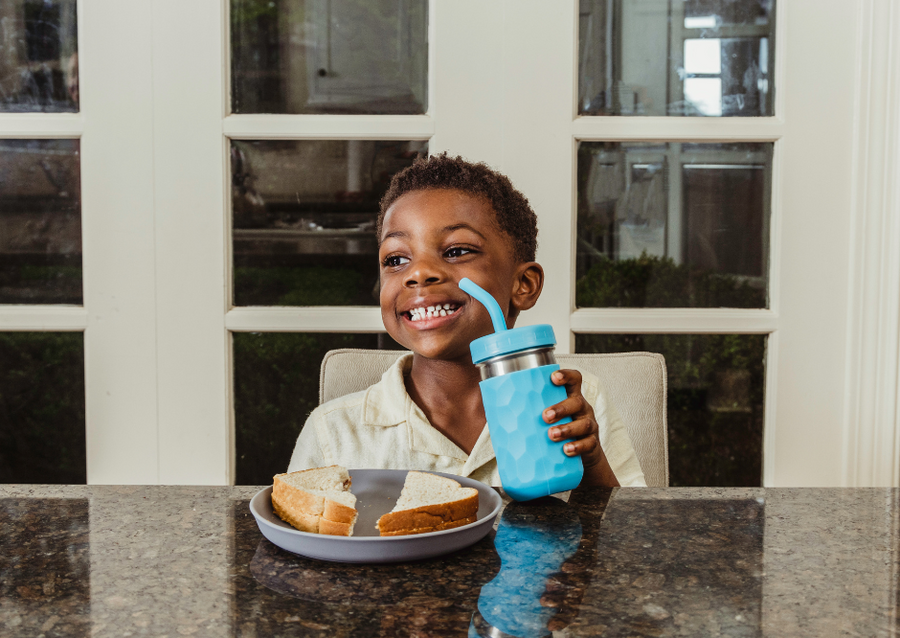There’s nothing more special to a parent than watching their little one grow. It’s almost magical to see them hit milestone after milestone and learning new skills every day.
One of the earliest milestones is switching from breastfeeding or formula feeding to eating solid food. There are many tips to help make this transition as easy as possible. You’ll get to do this through a process called weaning, which is when you gradually introduce solid foods over several weeks until your little one becomes accustomed to them.
Weaning is a pretty big deal because it marks the beginning of your little one’s independence. Once they are properly weaned, anyone will be able to feed them, and they won’t have to rely on you for food as much.
That said, it is also a scary time for most parents. There are lots of decisions to make during this time, all of which will have an impact on how your baby transitions to regular food. Do you buy ready-made baby food, or do you make it yourself? And if you’re making it yourself, where do you even start? What is the best way to do it? And how can you store it to ensure it remains fresh for your little one for a long time?
This short guide will cover all this and more. It will focus on how to make and store your own baby food because homemade baby food is better than store-bought for several reasons:
- When you make your own, you can monitor the levels of hygiene to ensure your baby does not get sick from the recklessly-made store-bought baby food. Your peace of mind during this time is vital.
- Since you get to decide what goes into the food, it is easier to ensure that your baby gets all the nutrition she/he needs.
- You can use genuine, whole products that are far more nutritious compared to store-bought food which likely contains highly processed ingredients.
- Making your own baby food is cheap!

What you need to remember when making baby food:
Nutrition
Breast milk has all the nutrients that a baby needs and keeps them healthy. As you wean your little one, try to incorporate as many nutrients as possible into the baby food. This is the only way to ensure your baby remains healthy when they are no longer consuming as much breast milk as they used to.
Food thickness and consistency
Because your baby is just starting to get used to a solid diet, you want to take it easy with the food thickness at first. Let them get used to it first because, otherwise, digesting can be difficult. Start with purees or really runny foods. Pack nutrients into these using a blender or food processor, which will also make digestion a little easier for your baby. Then gradually increase the thickness and even introduce lumps with time as your baby gets used to their new diet.
Hygiene
As you make your baby’s food, you need to ensure maximum levels of hygiene. Babies are highly sensitive to germs, so keeping this clean is important, so wash your hands, use clean ingredients, and ensure everything you use in the preparation process has been cleaned properly.
How to store baby food
How you store your baby’s food is just as important as how you prepare it. Good storage is essential if you want the food to remain fresh, ensuring that your little one won’t get sick when they eat it. Generally speaking, there are two ways to store baby food:
Freezing
To freeze your baby’s food, place the purees in freezer containers and keep them in the freezer. Doing this will keep them fresh for about two months. You may have to invest in a large freezer to do this efficiently.
Refrigerating
This approach works when you plan to use all the stored food within about three days max. To refrigerate your baby’s food, simply let the food cool completely then put it in a container, cover it, and put it in the fridge. The food will remain fresh for between 36-48 hours and edible for a maximum of 72 hours.
Alternatively, you can freeze the food for about 6-12 hours, then take it out of the freezer and place it in the fridge. Doing this will keep the food fresh for up to 72 hours.
Final thoughts
Here are a few more pro tips for making baby food:
- Go easy on the salt. In fact, you might not want to use any salt at all for at least a couple of months.
- Try not to use any spices as they can lead to indigestion and allergic reactions. If you must use spices, make sure that your little one can tolerate them and even then, use them in moderation.
So there you have it. With these tips, making and storing your baby’s food can make weaning and providing nourishing food much easier. Good luck!


